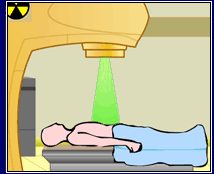
People are surviving cancer in greater numbers than ever before thanks to treatment options that include surgery, chemotherapy, radiation therapy, immunotherapy, and medication. But during or after treatment patients are often hit with a common side-effect of the disease—a debilitating and whole-body exhaustion that cannot be relieved by rest or sleep—called cancer-related fatigue.
Research has been conducted to test the characteristics and properties of drugs currently used to enhance alertness, treat depression, arthritis—and even narcolepsy—for their effectiveness in treating cancer-related fatigue. NCI-supported investigators conducted a review of literature on 32 clinical trials that were held in the U.S., Canada, and Europe, to better understand how these treatment options work.
 NCI NewsCenter
NCI NewsCenter NCI Budget Data
NCI Budget Data Visuals Online
Visuals Online NCI Fact Sheets
NCI Fact Sheets Understanding Cancer Series
Understanding Cancer Series
